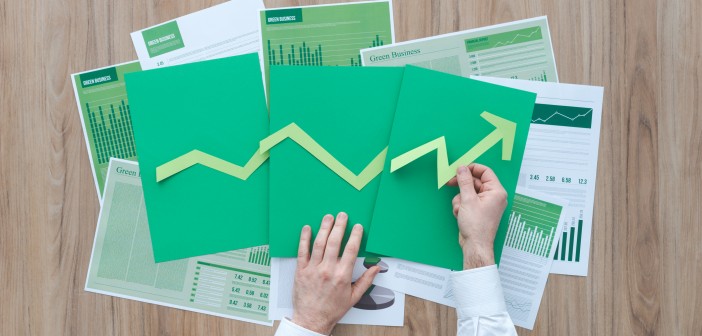Vince Cable’s ambition to establish the global capital of green finance in London is just the kind of vision our Indian partners want to see from the UK’s political leaders.
India – home to almost half of the world’s most-polluted cities – knows the environmental cost of its rapid economic growth. Raising the funds to modernise India’s energy infrastructure is the first challenge, and improving access to international green technologies is the second.
Scientists from the Global Carbon Project have spotted the first rise in global carbon dioxide emissions in three years, estimating that emissions see a 2 per cent year-on-year rise by the end of 2017. Declines in carbon dioxide emissions in the US and Europe have been lower than in previous years, while emissions from China and India have grown by 3.5 and 2 per cent respectively.
European technology-rich and innovation-intensive economies should approach the opportunity for partnership with India with all the energy they can spare.
There are many global partners with the capability to help India clean up its energy networks – namely, France – but few can compete with the UK’s power to finance India’s renewable energy networks and the development of green technologies.
Partnering to clean up India’s energy systems
In India, support for a cleaner energy programme comes from the top. France has already pledged to support Prime Minister Narendra’s International Solar Alliance in its goal to harness the power of 121 solar-rich countries to maximise their photovoltaic energy supplies and supply 1,000 GW of solar power by 2030. New Delhi will host President Emanuel Macron and other international delegates at the India-led International Solar Alliance’s first global summit in early 2018.
The partnership is a smart move for President Macron, who is considering switching EDF’s concentration from nuclear power onto renewable energy. France has the ability to support India’s national energy strategy because France – unlike the UK – has one of its own.
As with all the global markets for renewables, the driving factor behind cleaning up India’s energy grid is cost. It has had more success than other nations in driving the cost of solar power down, and solar became the cheapest source of electrical energy in India after federal auctions in May.
While driving down the price of supply, there is still only a limited supply of solar energy available on the Indian market, according to reports from Bloomberg New Energy Finance. New energy infrastructure – including off-grid solar panels outside of cities – is imperative.
Financing Green Energy
Vince Cable’s idea will provide the UK with a powerful means to support India as it urgently restructures its carbon-intensive economy.
Nikhil Rathi, the Chief Executive of London Stock Exchange, and Lord Ghadia, the noted investment banker and Conservative peer, have both spoken in support of the potential innovative use of London’s financial markets to finance India’s green energy projects.
International green technologies tend to be offered at prohibitive price points for the Indian market. The challenge that India’s trading partners will have will be to support green innovation at affordable prices for India and other countries.
London’s role is clear. In spite of Brexit, London is still considered a major financial capital in Europe. Michael Bloomberg, who has just rehoused his European trading team in newly-completed offices in London, has voiced his confidence in London retaining its status as Europe’s financial centre for the foreseeable future.
London offers unrivalled services to private investors and has deep pools of liquidity. As a result, it is the largest centre for offshore Indian rupee finance in the world and has been the preferred place for India to raise the masala bond, with thirty rupee bonds listed on London Stock Exchange so far.
That includes the first green masala bond, part of a market for green infrastructure investment which highlights the advantageous position the Indian economy has, in the current global low-yield financial environment, to fuel its sustainable growth.
We must exploit the long-term strategic advantage of our financial markets in a purposeful manner to fund India’s sustainable growth ambitions.
The Bank of America Merrill Lynch this week predicts that India will overtake Japan to become the world’s third-largest economy by 2028, but India’s preferred bilateral partners will be those helping to fuel the transformation of its economy, not just enabling greater trading relationships.
If London can satisfy its role in financing green infrastructure development and technological innovation in India, the UK will fulfil its potential to be one of India’s closest and most valued allies.
Manoj Ladwa is a British Indian entrepreneur and political strategist, and the editor of a new study of the UK and India’s partnership, Winning Partnership: India-UK Relations Beyond Brexit.
*This article was first published in Business Green magazine.







